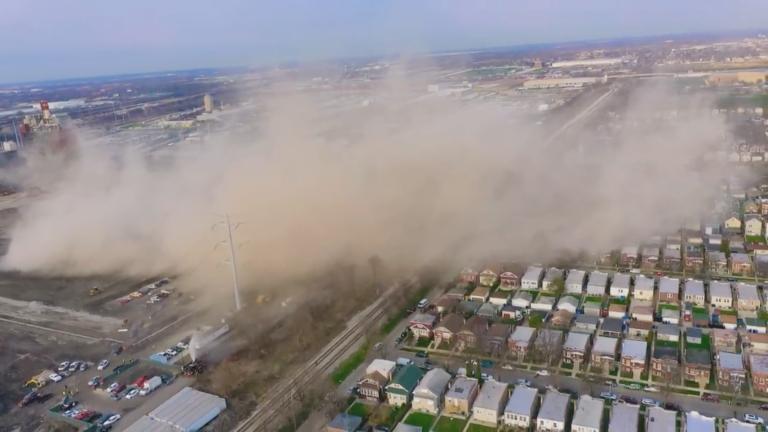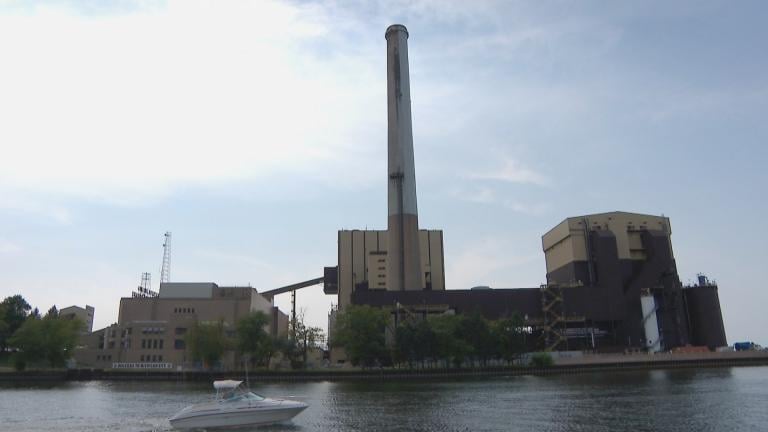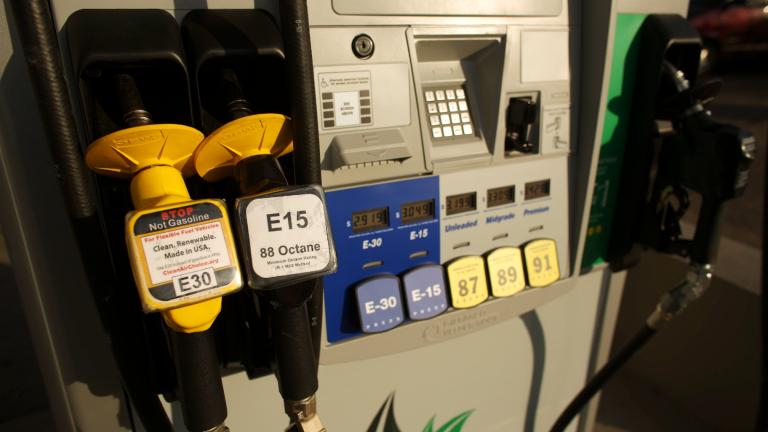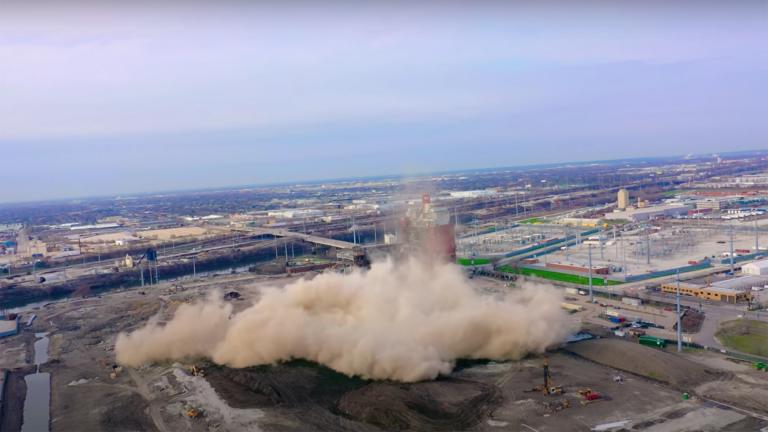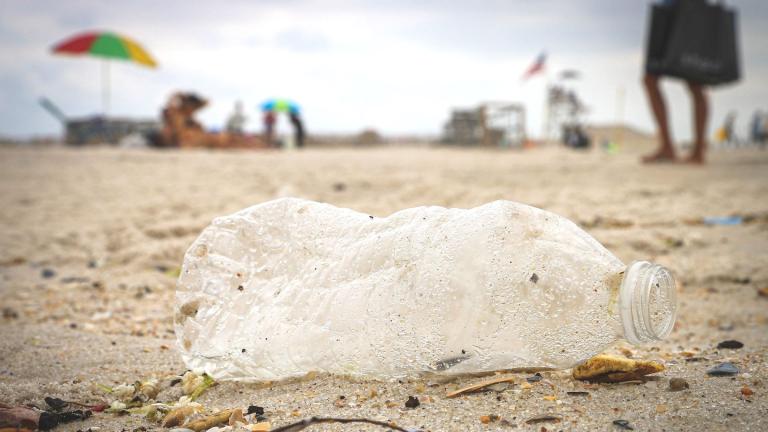Black and Brown communities in Illinois are up to 200% more likely to live near a distribution warehouse than the overall statewide population, according to a new report from the Environmental Defense Fund on the state’s “warehouse boom,” most of which is clustered in the greater Chicago area.
The report, released Wednesday, said the state doesn’t know enough about the stream of truck traffic, the pollutants those trucks spew or even who operates the warehouses to get a handle on the health and environmental impacts.
According to advocates, the glut has created 33% more warehouse square footage in the last decade and 72% more over the last 20 years.
“However, EPA grade NO2 and PM2.5 monitors that the state and federal government use to measure pollution and make regulatory decisions did not increase,” Sam Becker of the Environmental Defense Fund said at a briefing coinciding with the report’s release.
PM2.5 refers to small airborne particulates people can inhale, while NO2 refers to the chemical nitrous dioxide, a pollutant gas that diesel trucks contribute to creating.
“Today, we’re seeing large clusters of leased mega-warehouses that have no NO2 or PM2.5 monitor within miles,” Becker said, “meaning communities, advocates and lawmakers don’t have the data we need.”
The report found that many people of color in the Chicago area live in communities with a vehicle-related NO2 burden twice that of White residents.
“Studies have shown that exposure to air pollution increases the likelihood of strokes, pulmonary disease and various cancers,” state Rep. Dagmara Avelar (D-Romeoville) said. “It also exacerbates asthma, damages lungs and leads to lower respiratory infections. The toll it takes in human lives cannot be understated … but let’s make this clear: This is not just our health that’s at stake. Air pollution wreaks havoc on the environment around us as well.”
Avelar is co-sponsoring a bill in the General Assembly that would charge the Illinois Environmental Protection Agency with greater oversight of distribution warehouses, many of which are used by mega-retailers like Amazon, Target and Walmart. Among other anti-pollution incentives and transparency measures, the bill calls on the Illinois EPA to count how many trucks use the facilities, monitor emissions and publish annual data on the warehouses — including who owns the facilities and which companies operate in them.
Advocates said that final item is key since many companies lease warehouse space rather than owning and operating their own facilities. Currently, there is no comprehensive statewide information on where warehouses are located, who owns the properties and who uses them.
“We cannot reduce what we do not measure,” said Alfredo Romo, executive director of Neighbors for Environmental Justice. “If a factory puts pollution in the air from a building, the state requires a permit. But if a warehouse ships it out on trucks and spreads it through our communities, if they drop it off outside our schools and put it in our parks, no permit is required. No data is collected. No harm is acknowledged.”
Advocates also said many workers at warehouses are Black and Latino, immigrants, underpaid and lacking benefits, and can face unsafe conditions or illegal treatment on the job. Amazon warehouse employees in the Chicago area have complained of racist death threats; illegal retaliation and termination; and low wages — all charges the company has denied.
“Warehouse workers are statistically more likely to reside in neighborhoods that are also disproportionately impacted by diesel pollution and other environmental harms,” said Zhenya Polozova of the nonprofit workers center Warehouse Workers for Justice. “Many of them cannot escape toxic air either at work or at home.”
With the massive growth in e-commerce in recent years, the warehouse report’s backers said it is past time to understand and mitigate the human toll.
“We understand that freight is a critical part of our economy,” said Jose Acosta-Cordova of the Little Village Environmental Justice Organization. “The problem is that … from the global south to the South and West sides of Chicago, our communities are sacrificed so that wealthier populations can have access to whatever goods they desire, so that impatient shoppers can get their product delivered overnight or sometimes even as quickly as on the same day.”
Avelar said she expects a subject matter hearing in early May on the bill she’s sponsoring. The measure has already drawn opposition from the Chicagoland Chamber of Commerce, the Illinois Construction Industry Committee, the Illinois Manufacturers’ Association, the Illinois Road and Transportation Builders Association and other industry groups.
A less extensive version of the measure has also been introduced in the Illinois Senate. Its co-sponsor, state Sen. Javier Loera Cervantes (D-Chicago), said he hopes to meet with stakeholders who have raised concerns about the bill in an effort to “get this moving” and advance the measure in the coming weeks.
“We are already having the opponents coming at us and talking about their issues,” Cervantes said. “I’m someone that’s going to work with everybody. But at the end of the day, though, we can’t move away from the reason why we’re here.”
Contact Nick Blumberg: [email protected] | (773) 509-5434 | @ndblumberg

